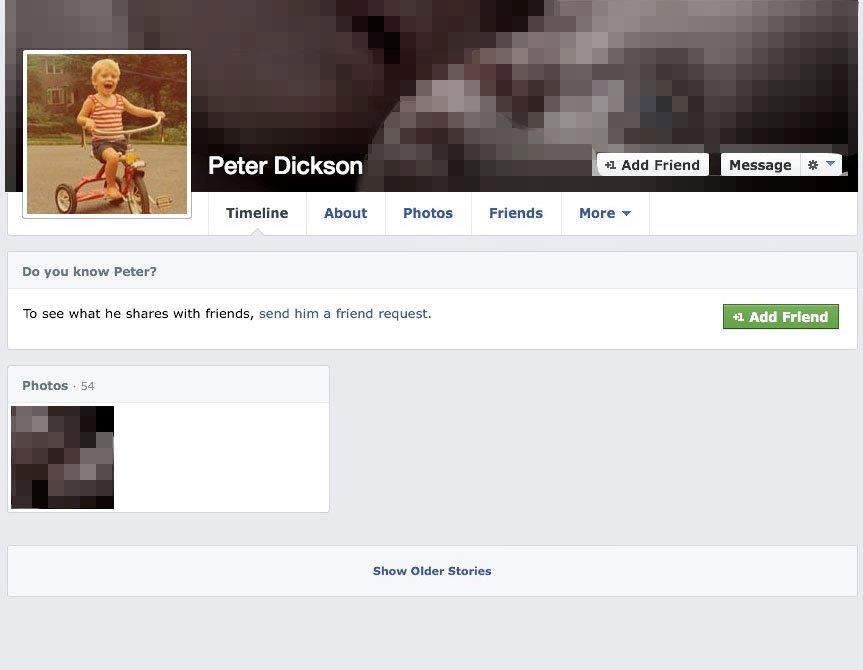A recent article entitled ‘We post nothing about our daughter online’ struck the eLearning team as it highlighted just how much of our private life we give up to the online world without too much of a second thought. The article gave a specific example of pictures of young children and the context of bath time, stating that these pictures could be viewed and liked by people who didn’t even know the child or even the parents.
The ever contentious issue of Facebook bore the brunt of the wrath, particularly the privacy settings and the fact that the options to edit your profile security are constantly being ‘updated’ making it difficult to have a secure page- well as secure as a digital footprint could be!
There is a plethora of information available how to protect yourself online, and the esafety buzzword is hardly out of the media spotlight often coupled with severe case studies, but what about the relatively normal day to day safety issues? How many know people know where the security settings on Facebook actually are? Moreover, how many ACTUALLY use them?
As a requirement of the colleges esafety policy- both of the Social networking and Personal publishing rules below must be adhered to;
2.
Staff are employed by the College to develop and maintain professional relationships with students and to respect the boundaries that come with this responsibility. Staff must not invite or accept students, past or present, to be friends on their personal Facebook, or other social networking sites, and to be aware of the dangers of divulging personal or inappropriate information to students using this medium.
4.
Staff should be aware that the information published on social networking sites should not bring the college, any member of staff, or student into disrepute. This includes the publishing of personal opinions or criticism.
The eLearning team blogged in early September about how to protect your online Facebook identity following on from some important discussions coming out of the latest Safeguarding training here within the college where the above regulations were discussed. This single post has been the most widely read of the entire blog- showing that it is clearly a sensitive and contentious subject that needs addressing, in highlighting HOW to make a profile private, WHY having a secure page a good idea and to think twice about accepting students and ex-students as friends.
To gather an idea of what information about Loughborough College any of the 250 million Facebook registered strangers could access, a social media investigation was instigated to highlight any particular security black spots or errors. Below we highlight three profiles, which were found with an easy search on Facebook because they are publicly linked to Loughborough College.
Example 1: This staff member had a fully visible page, which means that anybody can see posts, mobile uploads, profile pictures and cover pictures. From the content it is clearly a personal page that contains pictures of the family, including holiday and birthday celebrations which are all visible to the public. This page also states that the page belongs to a current staff member of the college subsequently creating an association between the content of this page and the college.
Seems fairly tame? However; unfortunately for this staff member mobile uploads are not secured and contain potentially offensive images. This wouldn’t be an issue if the privacy settings had been set to private but these images can be viewed by anybody including the students, parents of students and employer of the staff member.
Would you want your employer to see these?
Example 2: Similarly, this staff member was easily found and although we were unable to identify this staff member by their profile image, the description of Loughborough College was an indicator. Once on the open profile page on which posts, profile pictures and cover photos were openly viewable.
At first glance this profile seems fairly sensible as this personal page does not contain any potentially offensive content. However, the fact that this page did not have very well adjusted security meant that we were able to view personal images (not shown here). The important question to ask when having such an open profile is “do you really want people (maybe your students??) to see your holiday snaps?” If the answer is no then get security savvy.
Example 3: A prime example of good Facebook privacy settings being applied is by Communications manager Peter Dickson, whose profile page is locked down and its content only viewable by friends. This is now very common practice for professional people, keeping a clear distinction between the workplace and personal life, protecting themselves and their digital footprint.
So the big questions are these;
- Would you want your students to find you and your ‘personal’ self?
- Would you want your students to see you and your friends on a night out or in your leisure time?
- Would you want to open up the possibility of your students finding you, viewing your images and pasting a picture of your beach body over college?
Possibly not to all of these. If you need help in adjusting your settings, read our blog post http://blogs.loucoll.ac.uk/learningtechnology/2013/08/23/facebook-privacy-settings/?utm_source=rss&utm_medium=rss&utm_campaign=facebook-privacy-settings or come and see the team in B031, we’ll be happy to help you.
Don’t forget, if your profile picture mentions Loughborough College, it is not only yourself that you are embarrassing!
If you wanted further information on the Safeguarding policy and want to book onto Safeguarding training contact Staff Development or use the online booking system below.
http://sfpws.loucoll.ac.uk:81/
If you wanted to book onto the Social Media and Digital literacy CPD sessions running on the 28th October- please visit the booking system to browse the running times and available places.
http://sfpws.loucoll.ac.uk:81/



